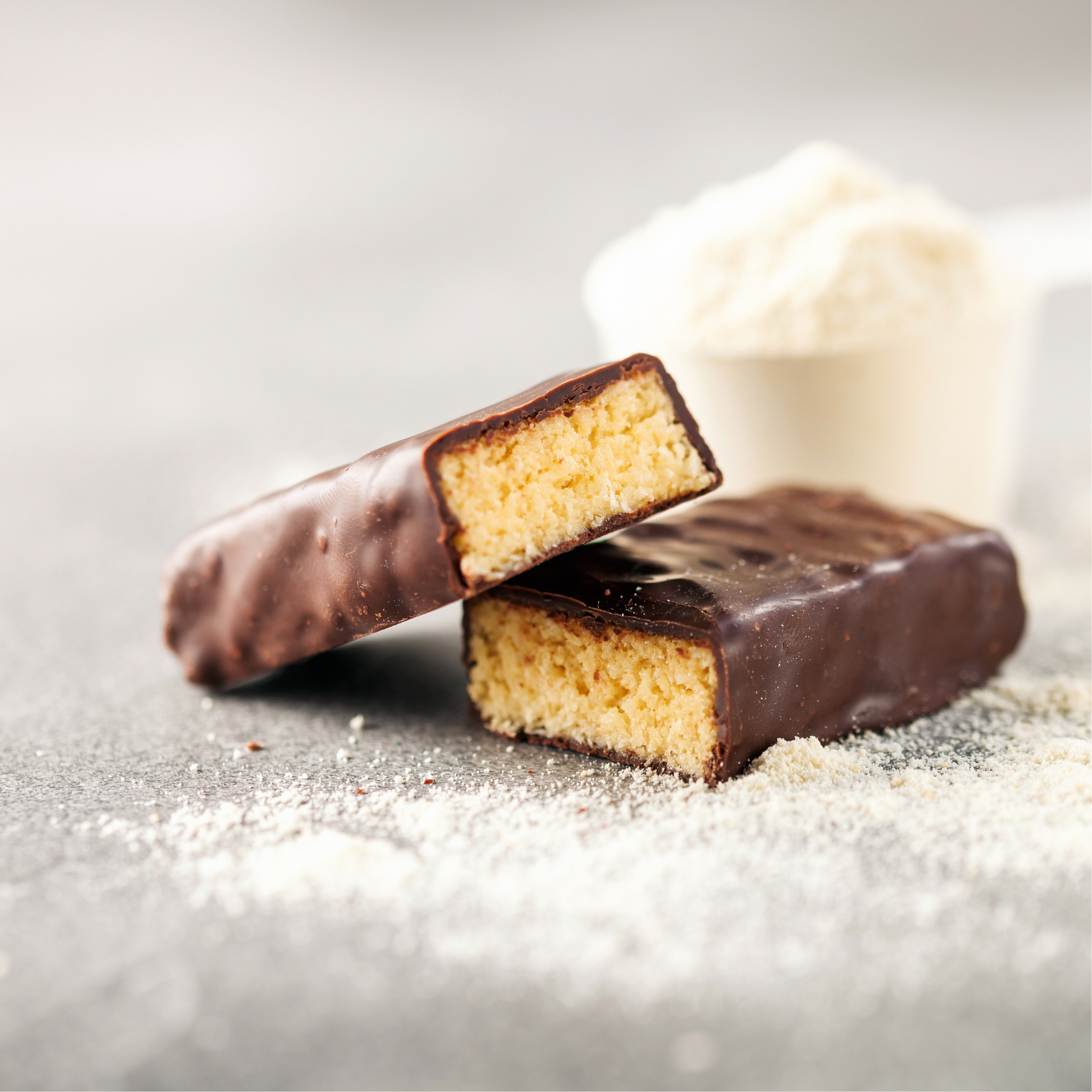Carbs are a big point of controversy in the fitness space – the worst of all the four letter words. But do cabs deserve such a bad reputation? For one, carbs are the body’s #1 preferred energy source, which is extremely important information for people who want to get stronger. This article unpacks what carbs really are, why low carb diets are not a good idea, why carbs will not cause you to gain weight, and why they are a crucial macronutrient that your body and brain need to function. This article also touches on carb cycling and how to manipulate carbs for effective workouts.
What Are Carbohydrates?
Carbohydrates are a basic food group (macronutrient) that is made up of fiber, starches, and sugars. The body turns carbs into glucose, which has a variety of essential functions. Technically, your body can survive without carbs because your body can make its own source of glucose from proteins during a process called gluconeogenesis. But this doesn’t mean that not eating carbs is optimal. Your body’s preferred energy source is from carbohydrates.
What Do Carbohydrates Do?
The primary role of carbohydrates is to provide energy to all cells in the body, usually in the form of glucose. The brain relies almost exclusively on glucose to function.Carbohydrates also store energy in the body in the form of glycogen. Carbohydrates, in the form of glucose, are also essential building blocks for our DNA. Carbs also spare protein and fat for other uses in the body.
Low Carbs vs More Carbs
Everyone’s body responds differently to eating carbohydrates. However, everyone’s body generally processes different types of carbs the same way. For example, poor carbohydrates (carbs that have a high glycemic index) that come in the form of crackers, cereals, white breads, etc. spike blood sugar levels, which is not good for the body, and can cause diabetes. Whole carb sources, such as potatoes, sweet potatoes, and rice help promote more stable blood sugar levels because they have a lower glycemic index and take longer for your body to process.
Low Carbs
The low carb diet craze started around 10 years ago. One of the reasons low carb diets became popular was because of weight loss success stories. But remember, weight loss doesn’t equate to fat loss. When a person eats lower carb, their muscles are less saturated with water, so weight loss is rapid at first, but it’s all water weight.
Another reason why low carb diets became popular is because in studies, low carb dieters show better blood sugar, reduced triglycerides, and increased HDL cholesterol levels (known as the good cholesterol) compared to their initial blood analysis. However, most of the people that go on low carb diets likely have a history of eating a lot of processed foods, so any change away from processed foods is going to show beneficial results.
It’s important to note, there is a difference between the ketogenic diet and the low carb diet. To be “keto”, only 5-10% of your calories come from carbohydrates, so your body can be fueled by ketones instead of glucose. Ketones are molecules produced by the liver as a result of fats being broken down for an energy source. This is called being in a state of ketosis.
Low carb diets are more of a philosophy as opposed to the more strict rules you technically have to follow to be considered following the ketogenic diet. However, both keto and low carb diets are hard to sustain for the long term.
More Carbs
Everyone is different in terms of eating more or less carbs. For example, if you’re pre diabetic, eating a low carb diet is a good option. However, there are better ways to go about weight loss than ascribing to a low calorie diet. Mostly because you might not lose weight eating that way for the long term. Most processed foods that are marketed as low calorie or keto actually have way more calories than their carb rich counterparts. And, when you cut out an entire macronutrient, you eat more of the rest. Not to mention, eating a low carb diet can feel boring or bland, which is not sustainable for the long term.
Instead of focusing on cutting carbs, focus on increasing your protein intake, or better yet, making your diet protein focused. Also try preparing complete meals – ideally, with a big hunk of protein, some fats, and a decent amount of healthy carbs. When you have a complete meal with whole carbs, your blood sugar maintains an even level, and you have a solid source of energy without the crash.
What Is Carb Cycling?
Carb cycling is eating higher carbohydrates on certain days of the week and lower carbohydrates on other days of the week.
Should You Carb Cycle?
Usually, carb cycling goes hand in hand with calorie cycling. Generally, when people eat less carbs on a certain day, their calories are lower as well. This doesn’t necessarily need to be the case, but it can be one strategy to use when in a caloric deficit. Usually, higher carb days correspond with workout days, so a person has more energy and fuel to lift with more intensity. Lower carb days are usually on rest days from the gym. Carb cycling can help you feel more satiated and fueled if you’re trying to cut calories. Bodybuilders commonly use carb cycling when cutting for a show.
Carb cycling requires a lot of planning and tracking, however, because you need to make sure you hit your prescribed calories per week based on whatever goal you currently have (maintaining, cutting, or building). You can play with eating carbs before a workout, however, to see if it will help your energy and performance levels increase.
The Best Carbohydrate Sources
The best carb sources are from whole, natural foods like sweet potatoes, potatoes, rice, oatmeal, fruits, vegetables, beans, etc. that have a low glycemic index and high fiber content. The fun carbs can be added in here and there, but that should be once in a while. If you’re worried about your health and blood sugar levels, eat these carb sources along with protein at the same time, and you won’t see the weight gain you think you will. Here’s a amazing pumpkin chili recipe that incorporates great carbs with protein. Eating carbs gives you energy for your workouts, which is very important for intensity in strength training.
Sweet Potatoes
Sweet potatoes are a source of fiber, vitamin A, vitamin C, and potassium.
Potatoes
There are many varieties with different mineral and nutrient contents.
Rice
Rice is certainly carb dense, but is easy to digest, and contains fiber to help feel satiated.
Oatmeal
Oats are rich in fiber, vitamins, minerals, and antioxidants. They also have more protein than most grain (5 grams of protein per half cup)
Fruits
Fruits have a variety of health benefits, depending on which fruits you eat.
Vegetables
Vegetables are a great source of carbs, especially when you’re cutting, because most vegetables have very few calories, have lots of fiber, and lots of minerals and other nutrients. The most nutrient dense vegetables are leafy greens and other greens, such as brassicas, and peas.
Beans
Beans are high in fiber, iron, and are a great vegetarian protein source. In short, beans are awesome!
Facts About Carbs
Carbs Will Not Cause You To Gain Weight
Carbs don’t cause you to gain weight, extra calories cause you to gain weight. Carbs are not going to cause you to gain body fat, period, excess calories do.
Carbs Provide Serotonin
Through various reactions in the body, eating carbs releases serotonin, which makes us feel happy.
Low Carbs = “Feeling Foggy”
Carbs, turned into glucose in the body, is the brain’s primary source of energy. When people go low carb, they often feel brain fog because their brain is running low on fuel.
How Does Fiber Play A Role?
Fiber only comes from carbs/plants and is indigestible, meaning it plays an essential role in digestion, gut health, and feeling satiated.
The Benefits Of Fiber
Improves Body Composition
Fiber is shown to improve body composition due to feeling fuller.
Helps With Gut Motility
Fiber helps gut motility, which refers to the process of food moving through the digestive system. When gut motility is poor, a whole host of problems can happen. Good motility is important for absorbing the nutrients from your food, and eliminating the rest.
Helps With Insulin Sensitivity
Fiber, especially paired with a high protein diet, helps with insulin sensitivity.
Final Thoughts On Carbohydrates
Don’t deprive yourself. Eat carbohydrates. Don’t fall victim to the fad low carb diets. Carbs do not lead to weight gain – increased calories do.
The moral of the story is carbs are not the enemy. Most “junk” food is high in carbs, but junk food is processed food. It’s easy to throw the baby out with the bathwater, but just don’t fall victim to processed foods. Processed foods (which includes foods labeled as “low carb”, paleo, or keto) in general, are not good for the body for a very long list of reasons, and tend to be calorie dense. When you eat a wholesome diet (eating mostly foods that you can make from scratch in your kitchen yourself), you’ll be eating wholesome carbs that are nutrient dense, full of fiber, low glycemic, are lower in calories than processed foods, and will definitely not make you gain weight, unless you’re eating more calories in general.
Sources Cited:
Barber, T. M., Kabisch, S., Pfeiffer, A. F. H., & Weickert, M. O. (2020). The Health Benefits of Dietary Fibre. Nutrients, 12(10), 3209. https://www.ncbi.nlm.nih.gov/pmc/articles/PMC7589116/
Yeli Wang, Yang Hu, Yi Wan, Eric B Rimm, Frank B Hu and Qi Sun (2022). Low-Carbohydrate Diets and Risk of Type 2 Diabetes in U.S. Men and Women. Circulation. https://www.ahajournals.org/doi/10.1161/circ.146.suppl_1.13226



